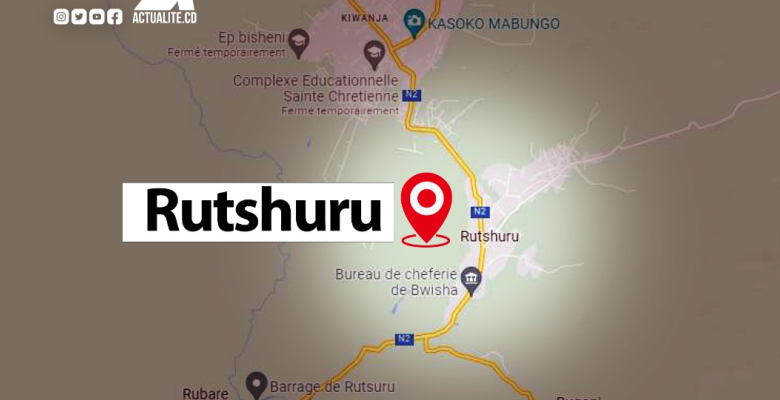Refugees Turned Away From Ugandan Border Face “Catastrophic Situation” In DR Congo
Thousands of refugees fleeing M23 rebel violence, pushed back from the Ugandan border, have arrived at a refugee centre where local leaders are gloomy about their prospects

More than two thousand refugee families from DR Congo who were refused entry into Uganda last week have arrived at the town of Rutshuru, adding thousands more to the refugees already there.
Fleeing M23 violence, the refugees intended to cross the border to find refuge in neighbouring Uganda. But there they faced beatings and terrible conditions there and decided to return to DR Congo.
As their homes are in areas now controlled by the M23 rebel group, they cannot yet return there, local leaders said.
“This is thus a catastrophic situation”, declared Jean Claude Mbabanze, president of the Rutshuru civil society.
“We were disturbed at the highest level. Since Thursday, people were being beaten in Uganda and since Friday, many are those who are already returning to their homes. Until last Sunday, we had received at least 2,100 families excluding those who went towards Goma.
The chief of the Jomba tribal group who himself is on the run had already expressed disquiet over the inhuman conditions under which the DR Congo refugees in Uganda were living.
“The government must also condemn the acts committed by Uganda against our compatriots”, Mbabanze said.
The refugees turned back from Uganda come to add to several thousand other displaced persons now in Rutshuru Centre following the occupation of their homelands by the M23 rebels supported by Rwanda. Several of them are housed in schools, stadia as well as by private families.
“The Congolese who went to take refuge in Uganda do not want to return where there are criminals. They are waiting for their army to recuperate their territory so that they can return. There are buildings but school directors and teachers are also displaced. They were taking refuge in Uganda but they have returned here. Our compatriots who were chased away from Uganda are lodged in shelters built in Nyongera. The non-governmental organisations are also constructing shelters. The refugees are not going to remain there forever. They will only be there for some time”, said the military administrator for Rutshuru territory, Colonel Bakole Nyengele Luc Albert.
Civil society organisations continue to put pressure on the DR Congo national army, FARDC, to “get up from their laxity and launch operations against the M23”.
The M23 rebels have for the past three months been occupying Bunagana on the border with Uganda. They have already installed their own administrative structures and have been collecting taxes from inhabitants who have returned to their homes because of the bad conditions under which they were living in refugee camps.
Support Our Journalism
There are millions of ordinary people affected by conflict in Africa whose stories are missing in the mainstream media. HumAngle is determined to tell those challenging and under-reported stories, hoping that the people impacted by these conflicts will find the safety and security they deserve.
To ensure that we continue to provide public service coverage, we have a small favour to ask you. We want you to be part of our journalistic endeavour by contributing a token to us.
Your donation will further promote a robust, free, and independent media.
Donate HereStay Closer To The Stories That Matter




